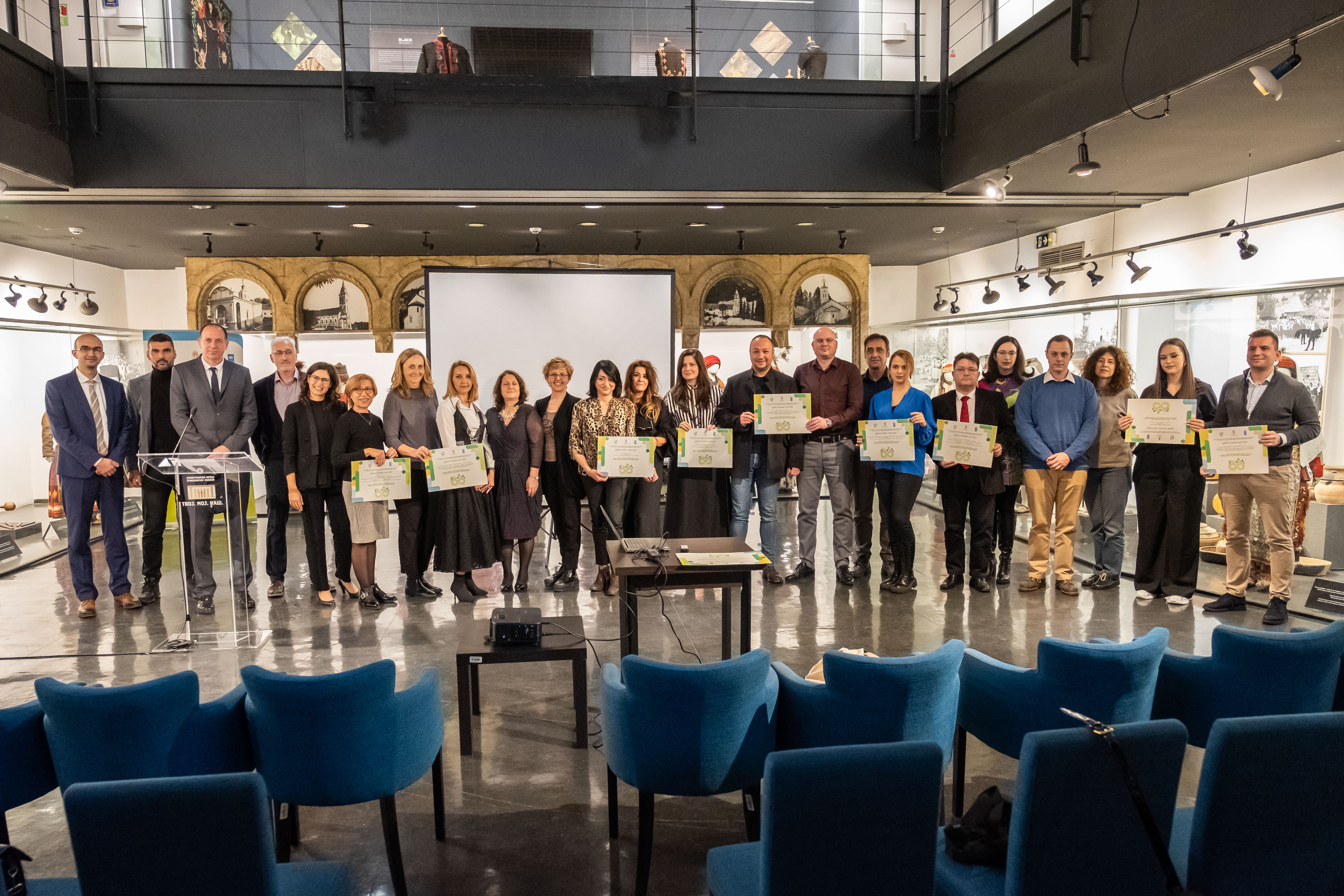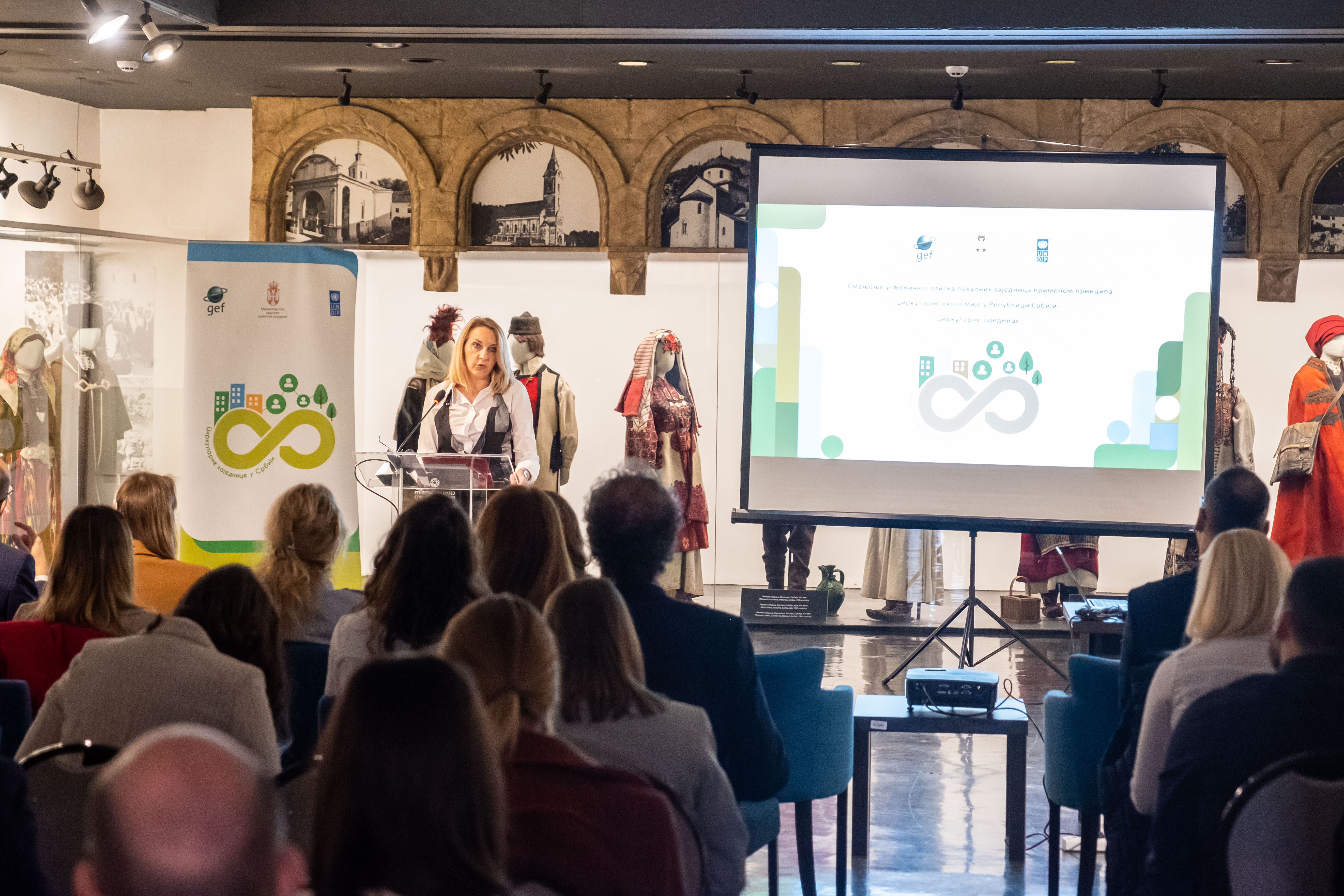USD 190,000 Awarded to Best Innovations in the Field of Circular Economy
November 16, 2023

Winners of awards for the best circular innovations
Belgrade, November 16, 2023 - Supported by the Global Environment Facility (GEF), the Ministry of Environmental Protection and the United Nations Development Programme (UNDP) gave financial awards in the amount of USD 190,000 to the authors of the 19 best innovative solutions for a faster transition to a circular economy. The awards went to private, public, and social enterprises, research institutions, and citizens’ associations. Their innovations will contribute to a more efficient use of resources and energy, better waste management, and hence a reduction in greenhouse gas (GHG) emissions and environmental protection.
State Secretary at the Ministry of Environmental Protection Sandra Dokić said that best practice examples should motivate everyone to transition to a more sustainable way of living.

Sandra Dokić, State Secretary at the Ministry of Environmental Protection
“This will require all of us to cooperate, starting with the public administration drafting the laws and policies to provide guidance to sustainable development, the business sector that should apply the legislation and demonstrate its own initiatives to improve the way they conduct business through greening activities, the scientific research sector that is there to support the development of new technologies contributing to savings in resources and energy, and, of course, the civil sector that is there to remind us how human health and quality of life are preserved through a healthy environment. Only through joint synergetic action can we ensure good results and leave life-sustaining resources for future generations,” Dokić explained.
“The circular economy increases the economy's competitiveness and may incentivize inclusive and fair economic growth”, Fabrizio Andreuzzi, UNDP Serbia Deputy Resident Representative, said, adding: “In order to accelerate the transition to a circular economy in Serbia, we are supporting the scientific and private sectors to work together to turn innovation into cost-effective business solutions. Furthermore, we are supporting local communities to apply circular models in practise more regularly, e.g., through partnerships between local self-governments and informal waste pickers.”

Fabrizio Andreuzzi, UNDP Serbia Deputy Resident Representative
Thirteen innovations resulting from collaborative efforts between science and industry were awarded the ‘circular voucher’, worth USD 10,000 each. These include solutions to recycle styrofoam and ash into materials usable in the construction industry, as well as solutions to process vegetable and fruit waste into new raw materials such as food colouring and industry and construction adhesives.
Six finest ideas for engaging informal waste pickers into formal waste management streams were awarded the ‘circular prizes’, also worth USD 10,000 each. Applying these solutions will simultaneously contribute to reducing waste and improving working conditions for waste pickers. For example, the Regional Development Institute plans to set up a waste oil collectors’ cooperative to include members of vulnerable groups such as the Roma and people with disabilities. They intend to develop a mobile application and hold educational workshops for waste collectors and citizens, with the goal of facilitating waste oil collection.
All 19 awarded solutions were selected through previously advertised public calls and will be implemented in 2024.
The event also included appearances by 14 major companies presenting measures they are planning or already implementing to save resources and energy and reduce water, air, and soil pollution, including streamlining their production processes, using circular product design, proper waste treatment, and implementing energy efficiency measures. These sustainable business plans and measures are their responses to the ‘Accept the Circular Challenge’ call by the Ministry of Environmental Protection.
This event was organised within the ‘Reducing the Carbon Footprint of Local Communities by Applying Circular Economy Principles in Serbia—Circular Communities’ project implemented by the Ministry of Environmental Protection and UNDP, with financial support from the GEF.

 Locations
Locations